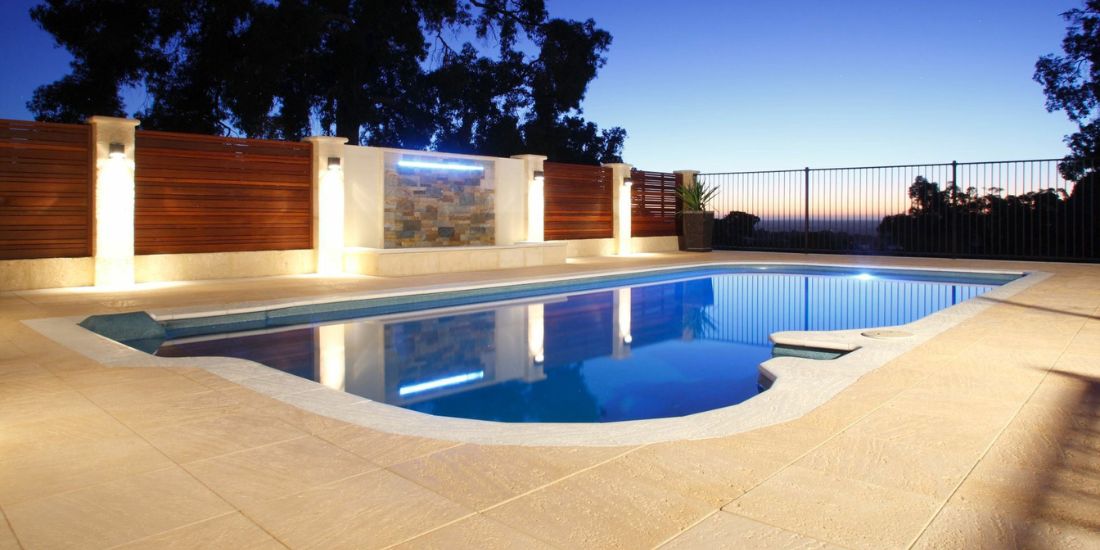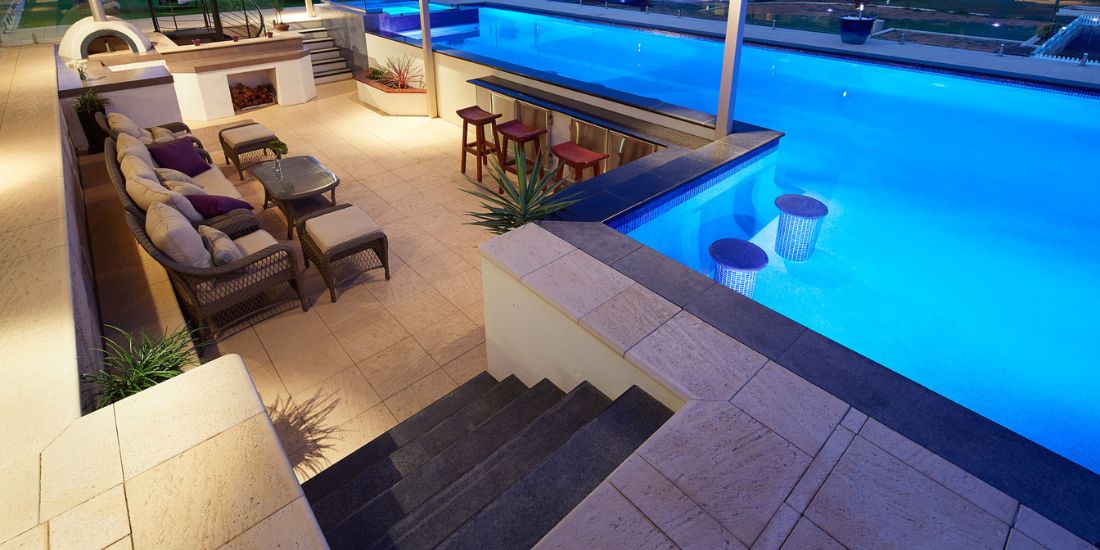
When it comes to stunning natural stone paver choices, limestone is undeniably a front runner in terms of aesthetics and durability. A question we commonly get asked here at Bonita Stone is whether limestone pavers need to be sealed or not. The short answer is that they don't need to be sealed however, it is strongly recommended that you do. In this post, we'll take a look at sealing limestone and all the benefits of doing so.
Limestone pavers are made from limestone, this is a natural material formed from calcium carbonate. It is a type of sedimentary rock that is exceptionally strong. They come in a variety of colour variations although they are most commonly found in shades of grey and white. Limestone can undoubtedly add a touch of class to any space.
Paver sealers have been designed to provide pavers with a protective barrier against the elements and external contaminants. They not only protect the paver but also keep them cleaner. Paver sealers can extend the lifespan of pavers significantly. While limestone is a very strong material, a sealer can make it that much more resilient.
Limestone is one of the more porous natural stones, and if it is installed outdoors and no sealer has been applied, it will be more prone to moisture absorption. Over time this can affect the integrity of the stone and cause it to deteriorate much sooner than you’d probably like it to.
One of the main benefits of applying a sealer on your limestone is that it can cut down on the amount of maintenance that is required to keep them in tip-top shape. Rather than spills and stains permeating into the stone, they are repelled which can make keeping your pavers clean much easier. As limestone is naturally porous, it can stain easily if no sealer has been applied.
Taking the time to seal your limestone pavers can save you tonnes of money in the long run on repairs and replacements. This ensures you get maximum bang for your buck, after all, limestone pavers are an investment, and you want to be sure they look good and last for decades to come.
Paver sealer comes in many different finish options. Some types such as a colour-enhancing sealer can accentuate the colours and formations in the stone. This can bring your limestone to life as well as protect them from external damage.

Sealing your newly laid limestone is a straightforward task that can be completed by any avid DIYer. Here is how you can do it yourself:
The surface of your limestone must be entirely clean before applying a sealer. Skipping this integral step will see contaminants like dirt or stains be trapped under or in the sealer. This can leave you with a less than appealing finish. Ensure that your limestone pavers have been thoroughly cleaned and the surface has had adequate time to dry before applying the sealer. Sealing the pavers when they are still wet can trap moisture in them, and this can cause premature damage as a result.
As mentioned, there are many sealers to choose from. Ensure that the sealer you choose is suitable for applying on limestone. If you use a sealer that is not designed for limestone, it may irreversibly damage the stone. We suggest using a paint tray and a sealer roller along with an extension pole for ease of application.
After your limestone pavers have had sufficient time to dry, you can then apply your sealer. Pour your sealer into the paint tray and roll your roller in the sealer. Remove any excess sealer by running the roller over the grid section of the paint tray. Starting from one end of the paved areas, roll the sealer over the pavers. Be generous when applying your sealer and ensure that no sections are missed when applying it.
Once you have applied your sealer, it is essential that you let the surface dry properly before walking over it or placing furniture on it. Typically, the sealer dries within 6 hours and even less time when the weather is warm. Ensure that the surface does not get wet for at least 24 hours after applying the sealer to your limestone pavers.
If sealing your limestone pavers is not something you feel confident doing, or you simply don’t want to do it, you can hire a professional to look after it for you.

For dense and porous stones such as limestone, an impregnating sealer is ideal as it penetrates deep into the crevices and holes to provide optimal protection.
Sealers come in various finishes, some of these include:
Whichever sealer you choose, it should be of good quality. Cheap sealers are notorious for leaving behind a film and this can make your limestone look poorly.
How long your sealer lasts is dependent on several factors. The location where it is applied and the quality of the sealer you use can affect its longevity. Impregnating sealers last much longer than other types of sealers. They can last anywhere up to 15 years whereas topical sealers can last for 3 to 5 years before they need to be reapplied.
Once you’ve sealed your limestone pavers, that doesn’t mean upkeep stops there. It is a good idea to sweep your pavers once a week and wash them with a mild detergent when they need it. Avoid using harsh cleaning products on your limestone.
We hope this post has expressed the importance of sealing your limestone pavers. If you have any additional questions on this topic or limestone pavers in general, contact us here at Bonita Stone, and we’ll happily help out if we can.
Contact us today to find out more about our products and services and how we can help you with your paving needs
© 2026 Bonita Stone Paving Products